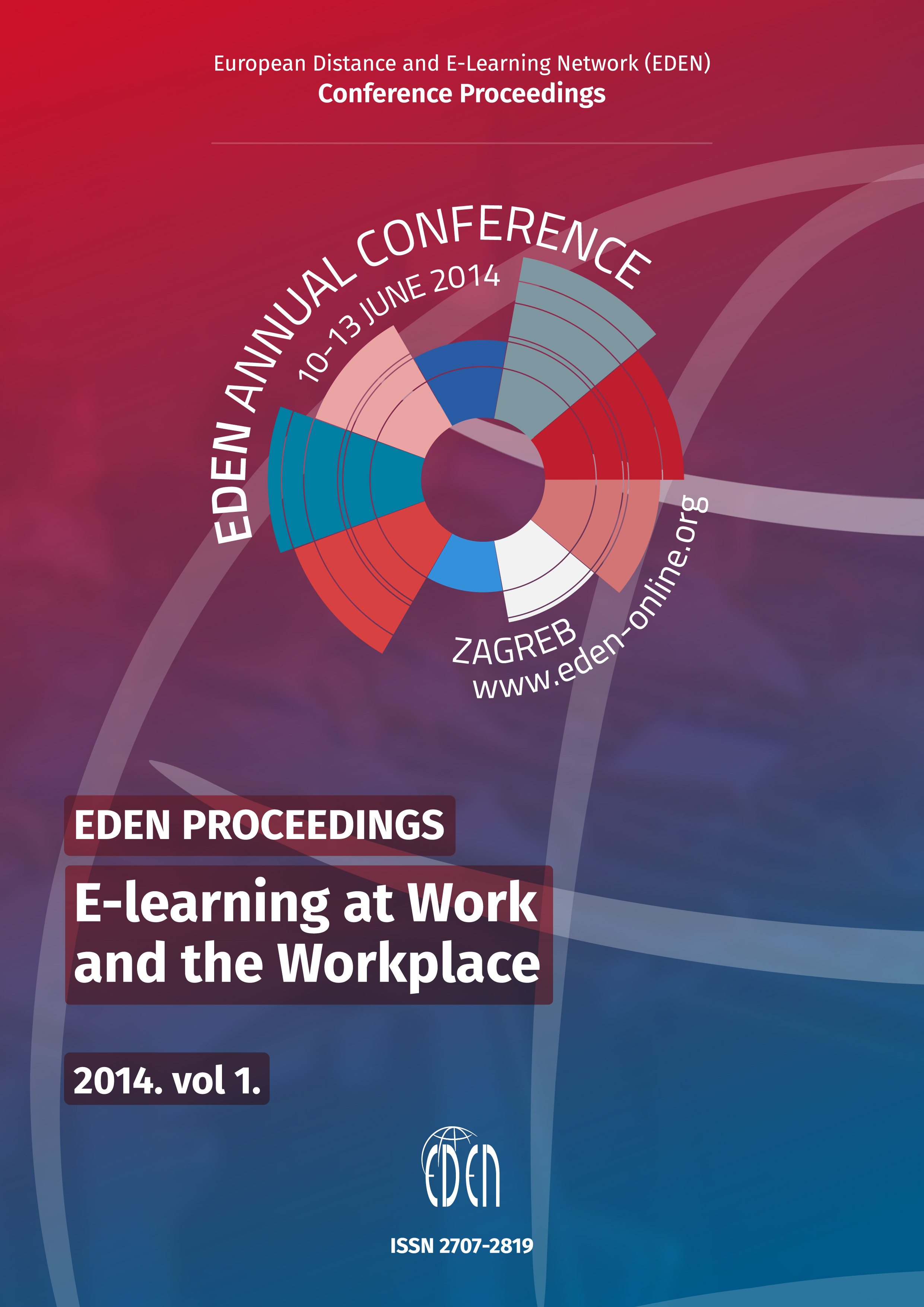Online Models for Professional Development of a Distributed Team Using Virtual Tools; the Dyslexia in Modern Languages Project
Online Models for Professional Development of a Distributed Team Using Virtual Tools; the Dyslexia in Modern Languages Project
Author(s): Sarah Heiser, Matilde Gallardo, Ximena Arias-McLaughlinSubject(s): Social Sciences, Education, Higher Education
Published by: European Distance and E-Learning Network
Keywords: Distance and e-learning methodology; distrubuted teams; E-skills, e-competences; Institutional case study; Open content and resources; professional development; Training of teachers / trainers
Summary/Abstract: This paper presents an online model of professional development for a distributed team of teachers of languages in a distance learning context. It presents a model that uses both synchronous and asynchronous tools, as used in previous projects by the project team and their colleagues as staff developers to bring together teachers, variously to develop online skills and practical knowledge to underpin the support of distance learners. This paper shows the model and its evolution in this particular project. With a focus on developing teachers’ pedagogical expertise in the field of modern language teaching and specific learning differences, SpLD, and dyslexia in particular, it shows the use of a range of virtual tools to facilitate the shared gathering of information and the writing and reversioning of learning materials to support adult language learners with dyslexia in HE. This paper proposes to show the teachers’ engagement with the shared gathering of knowledge and collaborative production of open educational resources, OER for supporting these students.The study covers a staff development project which took place at the Department of Languages, Open University, UK, between December 2012 and July 2013. The project rationale was the identification by teachers and their academic managers that many language teachers in distance learning felt they could be better prepared to support adult language learners with dyslexia. The project sought to answer the part time teachers’ questions, “How can we make adjustments in our teaching to accommodate the individual learning needs of dyslexic learners?" and “How can we best support our dyslexic students?” As a first joint action, the participants worked with a shared purpose, to gather a literature of pedagogy and accounts of practice from a variety of contexts.
Journal: European Distance and E-Learning Network (EDEN) Conference Proceedings
- Issue Year: 2014
- Issue No: 1
- Page Range: 270-278
- Page Count: 9
- Language: English

